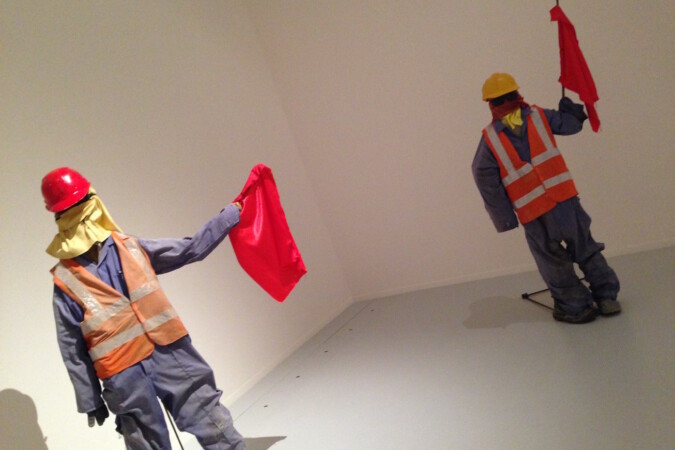Hundreds of World Cup workers stage protest, remain unpaid and destitute
Poorly managed and executed short-term contracts and visas add to workers' woes
Workers who worked on security detail during the FIFA 2022 world cup in Qatar complain that they have not been paid, and many of them have been rendered homeless.
Workers speaking to The Telegraph and Josimar Fotball recount the deplorable working and living conditions they experienced. Those affected are primarily security guards employed by Stark Security Services and Festival Global Management, who worked at the media centre and other World Cup sites.
The Telegraph reported that hundreds of these workers protested non-payment and unfair termination. According to the newspaper, the “protest was the culmination of a long-running labour dispute involving workers sacked before the end of their six-month contracts to work at the World Cup. They were left without salary, bonuses and a place to live – forcing them to occupy their company accommodation.”
The newspaper says that following the protests, workers were escorted to their accommodation to initiate the deportation process. About 1,000 workers were originally involved in protests over unpaid wages and bonuses.
“The dispute began during the tournament when workers were asked to sign new contracts. It then escalated after the World Cup finished when many of them, employed by Stark Security via the main contractor Festival Global, found their original six-month contracts terminated. At its peak, the dispute saw 1,000 workers occupying their accommodation and refusing to leave unless they were given unpaid wages and bonuses.
It is estimated that just 100 of the 1,000 workers originally involved in the occupation, which began on December 20, are still camped out at Barwa Al Baraha, the labour accommodation provided by the company [as of 24 January 2023].
Furthermore, The Telegraph reports that the workers were compelled to sign a statement declaring that they are no longer owed any wages in return for a small compensation fee.
The report in Josimar Fotball quoting workers, says:
”We don’t have food. We haven’t eaten in two days. The court doesn’t take action [against unpaid wages]. We don’t have nothing.”
It’s a month after the World Cup and migrant workers David, 17, and Paul, 18, from Western Africa can’t see a way out of their predicament: they have no money, no food on the table and they have been told to leave their accommodation [...]
For months, the teenagers have been at the mercy of their employers, Stark Security, who provided manpower during the World Cup as well as the 2021 Arab Cup. They stood at Stadium 974 where Brazil danced their way past South Korea and Lionel Messi and Argentina defeated Poland 2-0 on the way to their coronation. But, while they guarded stadiums and other World Cup hubs, including the main media centre, David and Paul were never a true part of the glitz and glamour that Qatar presented to the world during the four-week sporting extravaganza.
[...]
From the first of January, Stark Security stopped providing food to David, Paul and the other workers on short-term contracts. Unpaid salaries and bonuses, the labour dispute spiralled out of control: workers defied Stark Security openly with a protest in downtown Doha, but their defiance was short-lived. In a clampdown by police, they all – around 400 workers – faced deportation. In Qatar, authorities do not take well to protesting.
[...]
On Monday, January 23, David, Paul and Mark had to vacate their cramped room. With a few personal belongings and a mattress, they were left on the streets. It rained and temperatures dropped at nighttime. With nowhere to go and no safeguards, the boys feared they’d be detained and deported. For three nights the teenagers slept rough.
“Our youngest sibling among us – I am afraid for him because he cannot endure the cold weather and hunger,” said Paul.
A festering issue
In the run-up to the World Cup, Qatar began recruiting workers under short-term visas to meet the temporary but burgeoning need for labour to complete construction of infrastructure projects, as well as to work in hospitality and security sectors during the games. Many of the workers in the former class were forced to return, as Migrant-Rights.Org reported previously.
The visas and contracts were issued as part of the ‘Exceptional Entry Permit’ under the Supreme Committee for Crisis Management. The committee was established in 2020, headed by the Prime Minister and Minister of Interior, ‘for managing crises and disasters.’
There has been widespread misuse of these visas and short-term contracts as reported by MR, including bypassing regulations of the Qatar Visa Centres, resulting in the severe exploitation of workers that has led to a growing number of strikes and protests.




